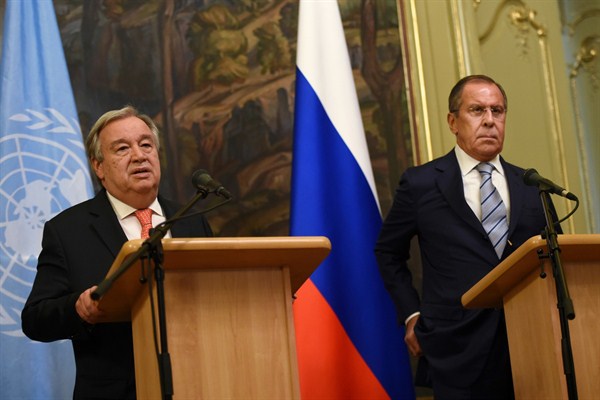In a period of heightened tensions at the United Nations and other multilateral organizations, diplomats are spending a lot of time arguing about truth and facts. Last week, representatives to the Organization for the Prohibition of Chemical Weapons, or OPCW, debated a British motion that the body should not merely probe technical aspects of incidents involving chemical weapons use but also identify perpetrators.
The proposal passed with support from three-quarters of the organization’s members. But Russia resisted the idea, and powers including China and India also opposed it. Moscow does not want international investigators blaming its allies in Syria for chemical attacks. But this debate was symptomatic of a broader argument that will escalate in the future: What is the role of multilateral bodies in deciding the facts of security crises?
Since the end of the Cold War, states have accepted an unprecedented degree of transparency in security affairs. This rests on confidence-building arrangements such as the Open Skies Treaty, which allows Western countries to conduct surveillance flights over Russia and vice versa, and the work of impartial international mechanisms like the OPCW. These are the building blocks of what the British diplomat Robert Cooper called an “extraordinary revolution” in security diplomacy in the 1990s, as states that had previously striven to conceal their military capabilities suddenly committed to “ending mutual secrecy.”

